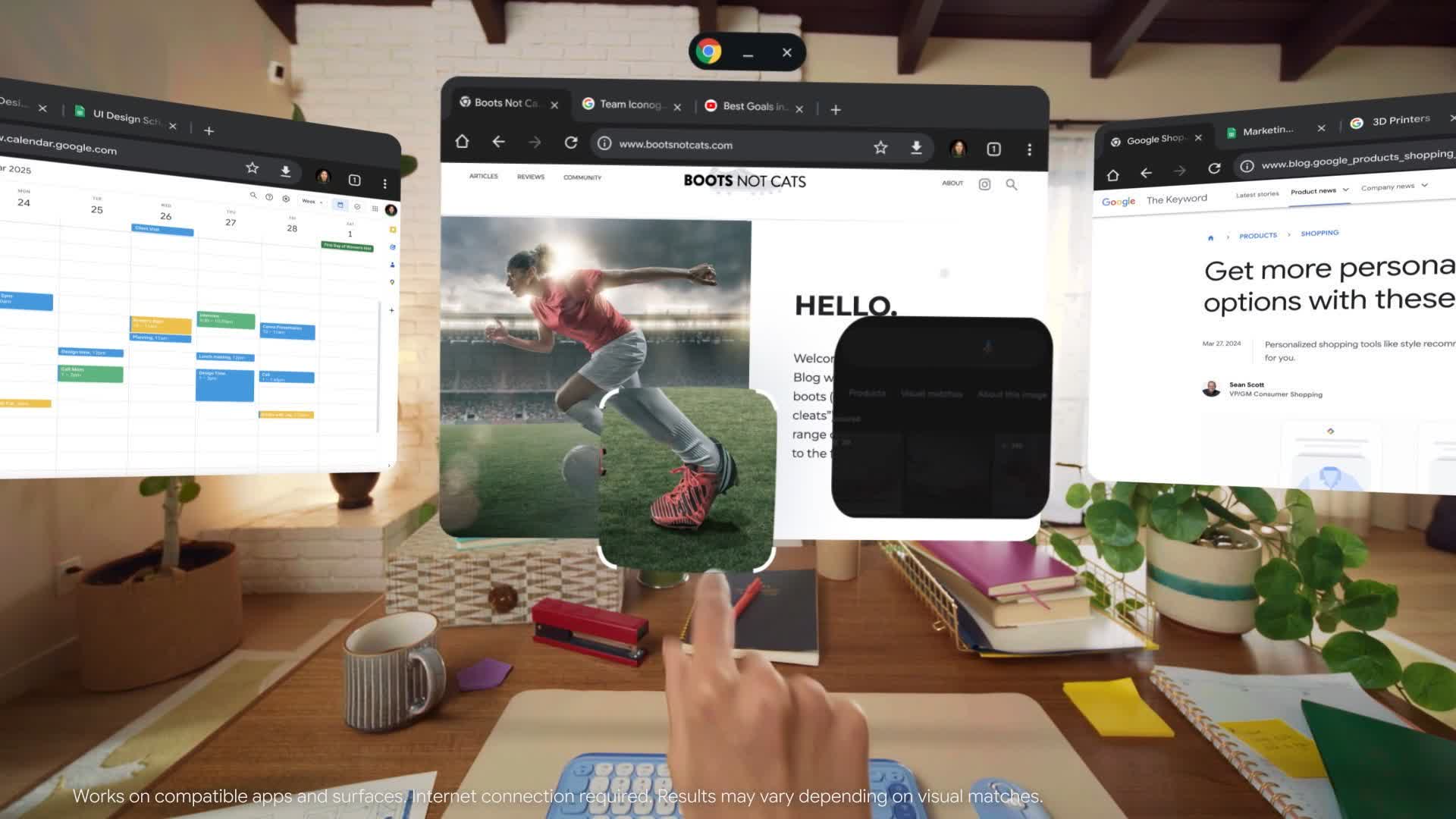In brief: A primary selling point of Apple's Vision Pro is a software platform many users are already familiar with. Google is trying to repeat the strategy with Android XR but with a couple of crucial differences – availability on devices from third-party manufacturers and a heavy emphasis on GenAI.

Google recently unveiled Android XR, a version of its mobile operating system redesigned for extended reality headsets and glasses. A developer preview is available now, and the first compatible devices are planned for release in 2025.
Although third-party developers have only just begun working with Android XR, Google demonstrated how it is using XR to transform some of its in-house apps. YouTube and Google TV are viewable in large virtual screens, Google Photos displays images in 3D, Google Maps receives an immersive view mode, and Chrome can display multiple windows around users.

Furthermore, users can interact with Android XR apps through hand-tracked gestures. One example shows someone viewing a picture of a soccer player in Chrome and drawing a circle around their shoes to Google search for similar pairs. Android XR also supports all Google Play phone and tablet apps.
In contrast to Apple's visionOS, which doesn't employ Apple Intelligence, some Android XR apps incorporate Google's recently unveiled Gemini 2.0 GenAI model. AI agents can recognize what users look at, converse with users, and access device controls through natural language prompts.

Google hasn't announced plans for a flagship headset, but Samsung is expected to release the first Android XR-supported device next year. Lynx, Sony, and XREAL might also soon begin developing headsets running on Qualcomm processors. At least one of them will probably undercut the Apple Vision Pro's $3,500 price tag.
Moreover, Google is taking the opportunity to cautiously gauge interest in another attempt at smart glasses with its new XR OS. The company plans to begin testing XR glasses prototypes soon but didn't mention plans for a full release. Demo clips show Android XR offering turn-by-turn navigation through Google Maps, translating a restaurant menu a user looks at, and showing directions for building a shelf.
The company is obviously trying to avoid a repeat of Google Glass. The early attempt at smart glasses first appeared over a decade ago but failed to gain traction and raised significant privacy concerns.
Google wants you to strap Android to your face with Android XR